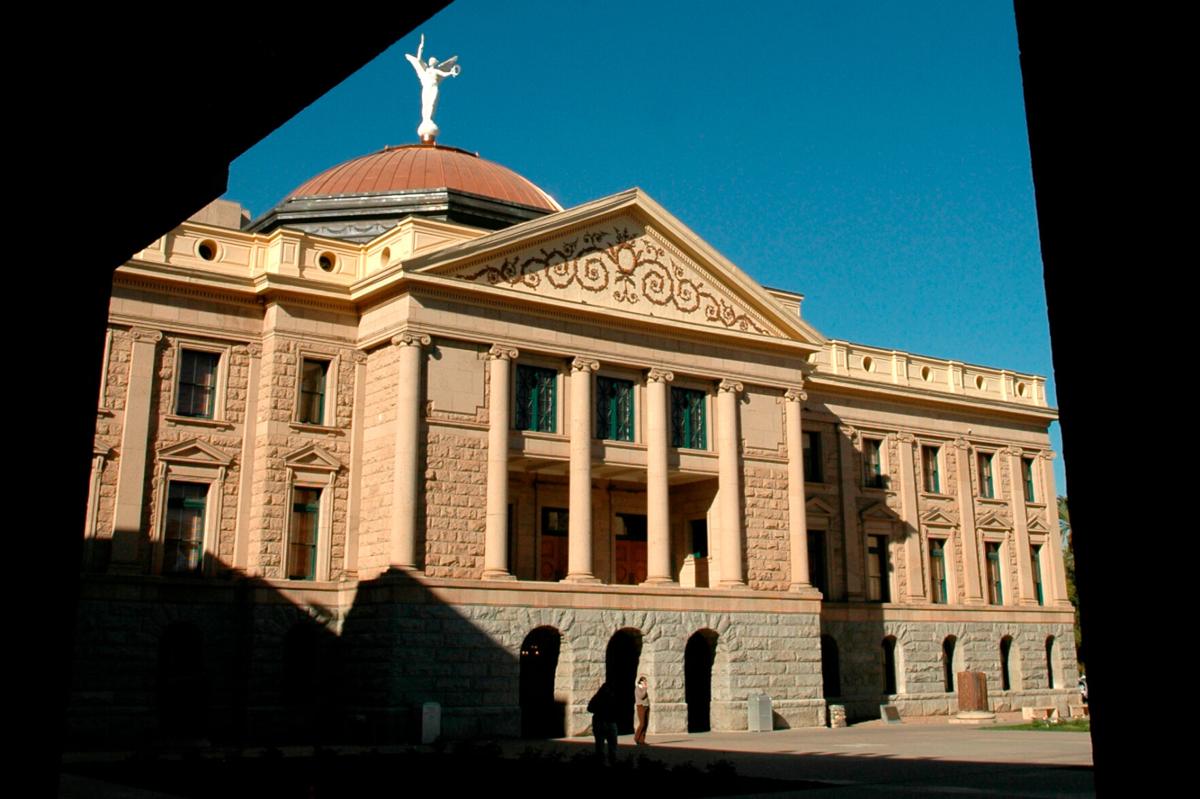PHOENIX — A year after exempting themselves from public records laws, state lawmakers took the first steps Wednesday to formally repeal requirements that they obey the same open meeting laws that exist for everyone else.
Rep. Barbara Parker, R-Mesa, said she introduced HB 2481 to “reform” and update state laws on open meetings. And she was particularly interested in ensuring that those who go to such meetings have not just the opportunity to watch but also the ability to speak and address members of governing boards.
The measure, however, revises the definition of “public body” — the groups to which the law applies — to exclude the Legislature. Parker told members of the House Government Committee it was a “technical change.”
She cited the 2022 ruling by the Arizona Supreme Court which dealt with a lawsuit by a coalition of rights groups charging that there were 26 Republican lawmakers — a quorum of at least five legislative committees — attending the annual conference of the American Legislative Exchange Council. That group, funded largely by corporate interests, serves as a clearinghouse of sorts for proposed changes in state laws across the nation that can end up being formally adopted by legislators here.
Petitioners said that shuts the public out of the process at the earliest stage of changes to state law. More to the point, the fact that there is a quorum of a committee present means that the first action on the legislation effectively occurs behind closed doors.
The state Court of Appeals ruled the lawsuit could continue, noting that the Legislature, in including itself in the law, implicitly acceded to judicial enforcement of the requirements.
But Justice Ann Scott Timmer, writing for the high court, said the Arizona Constitution gives the House and Senate the power to determine their own procedural rules. And that, she said, “necessarily means each house can interpret, amend, enforce or disregard those rules with almost limitless impunity.”
Parker told committee members on Wednesday the Legislature has to repeal that provision.
That, however, was not what the Supreme Court ordered.
What the justices said is that they are powerless to force lawmakers to live within the laws they themselves created — and that lawmakers are free to ignore the statute that they applied to themselves without fear that some individual or organization will sue to force them to follow it.
“It generally falls to them (the legislative houses) — not the courts — to enforce any violations by members,” Timmer wrote. And she said it makes no difference that the rules the House and Senate have adopted substantially mirror the Open Meeting Law.’
If Parker’s bill becomes law, however, what lawmakers are imposing on other levels of government actually would be greater than their own rules.
Current law says most meetings have to be open and the public is free to attend and listen. But a new provision would require all public bodies to “provide an opportunity for public comment in person before any final decision, subject to reasonable time, place and manner restrictions.”
That isn’t necessarily how things run at the Capitol.
The lawmakers who chair committees often limit public input on any issue to no more than two or three on each side of an issue. And on some issues — adopting the state budget in particular — no testimony is allowed.
Parker said she doesn’t see a problem with exempting the Legislature from the law.
“The Legislature has demonstrated its firm commitment to transparency and open meetings through its rules of procedure,’’ she said in a prepared statement. Parker said the Supreme Court ruling confirms the Legislature cannot be sued under the law “and this bill simply codifies those principles.’’
Parker declined to answer questions about whether it was proper to impose new rules on others while exempting legislators.
Last year the Legislature exempted itself from state public records laws and also decided to destroy all email correspondence sent or received by lawmakers or staff after 90 days, regardless of whether the public knows they exist and can ask for them.
And the Senate also completely exempted text messages on their personal phones, which lawmakers frequently use for legislative business, from release at any time. The House policy is not as expansive.
All this came on the heels of public release of thousands of documents detailing efforts to undermine the 2020 presidential victory of Joe Biden
If those rules had been in place after the 2020 vote, the public would have been kept from learning about many of the efforts to persuade Arizona lawmakers to throw out President Joe Biden’s win.
One of the most well-known of those efforts was a series of emails that Virginia Thomas, wife of U.S. Supreme Court Justice Clarence Thomas and a supporter of former President Donald Trump, sent to a host of state Republican House and Senate members just days after President Joe Biden won the election. She urged members to throw out Biden’s delegates to the Electoral College and replace them with a GOP slate.





